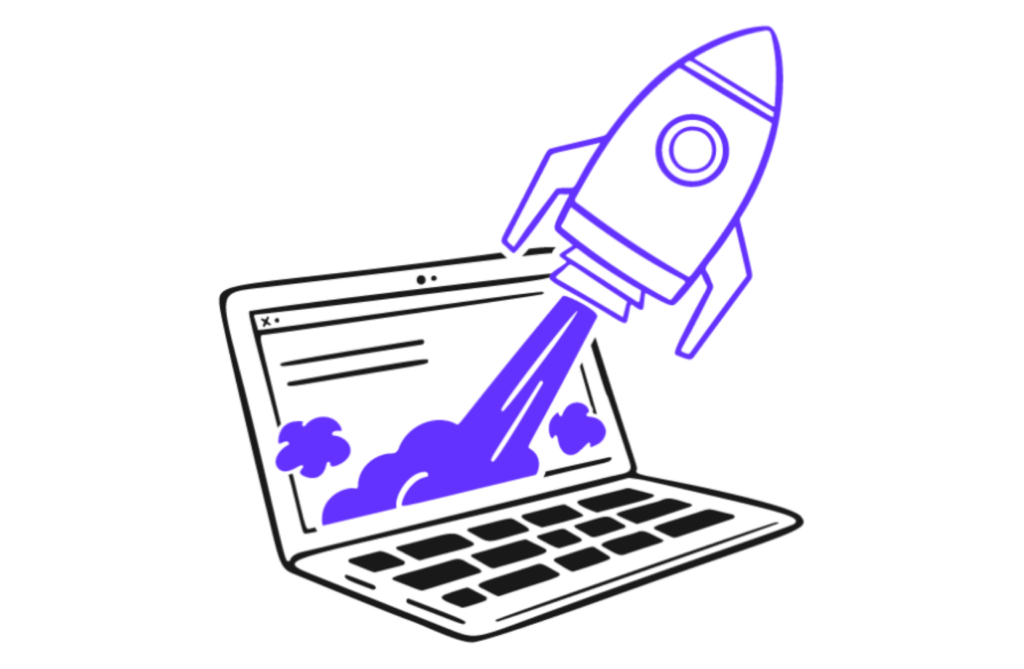How AI Search is Different
For over 20 years, Google (and any other search engine) had significant limitations. Users had to use simple keywords instead of natural language.
Now, AI search engines (including Google!) allow for natural language queries, you can ask them some questions the same way you talk to a friend.
Here are some examples from popular AI search engines:
SearchGPT:
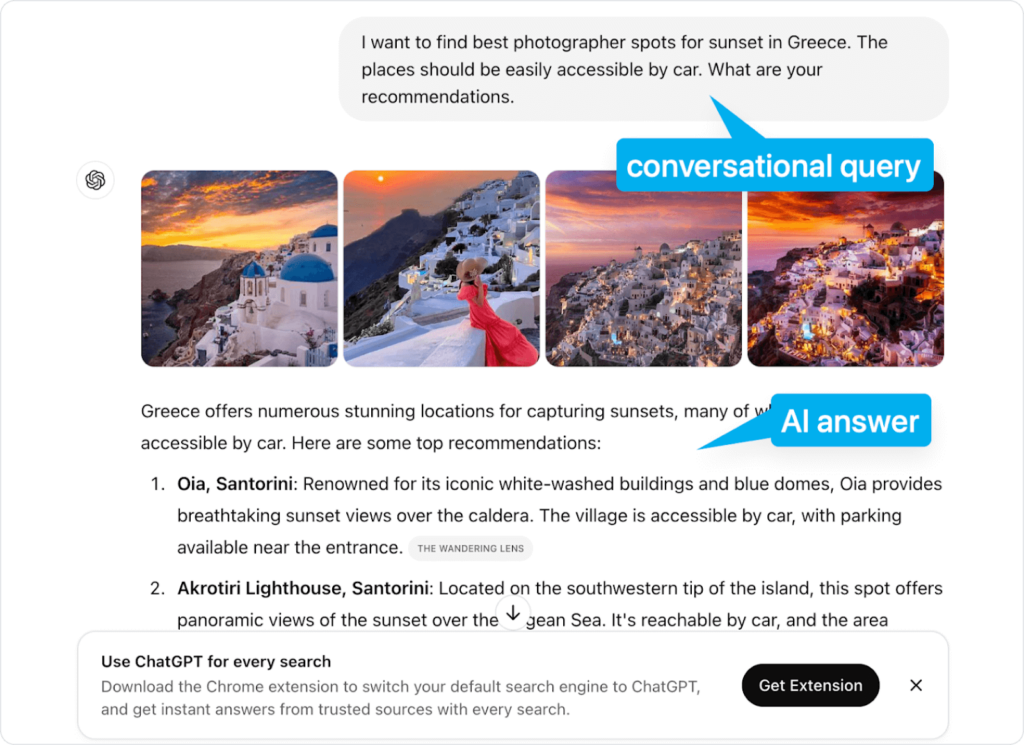
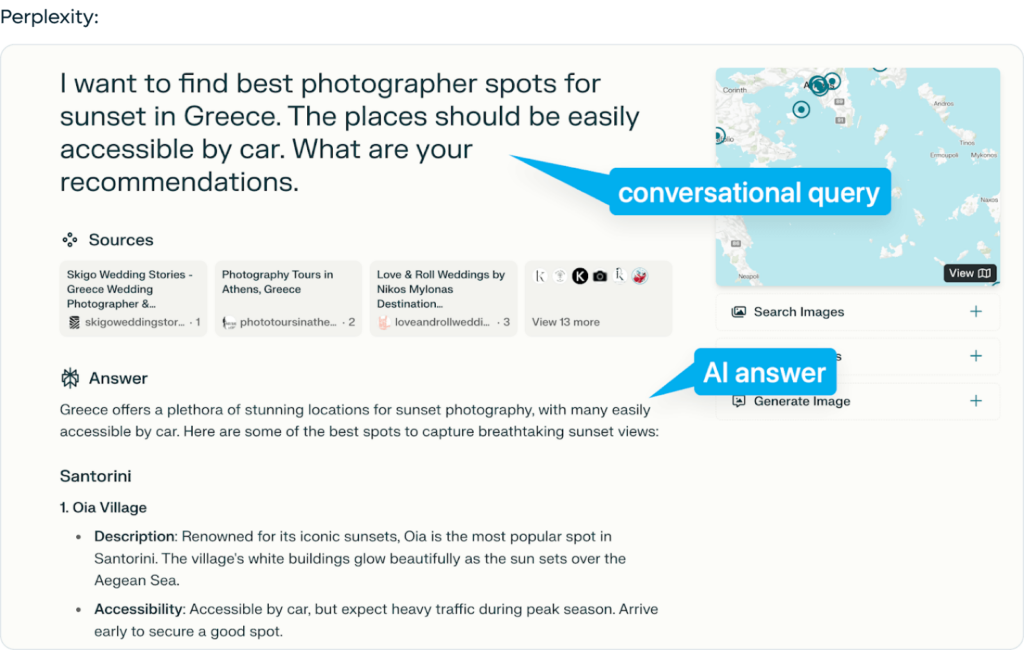
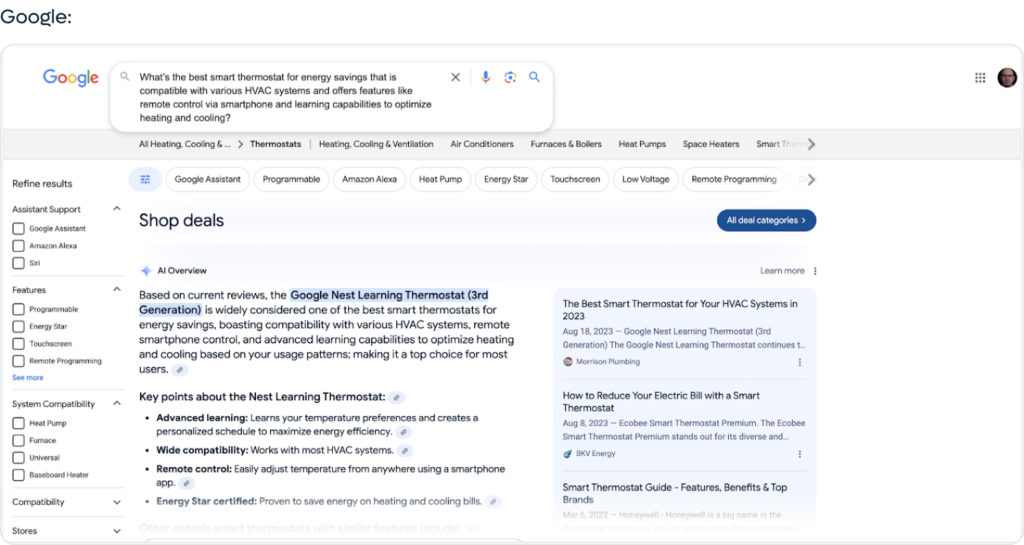
Google’s Response
Google is adapting to this shift:
- They’ve introduced AI Overviews – AI-generated summaries at the top of search results. The AI Overviews are already shown in 100+ countries.
- According to my research these AI summaries now appear for about 20% of conversational queries, up from just 2% initially. That’s 10x increase!
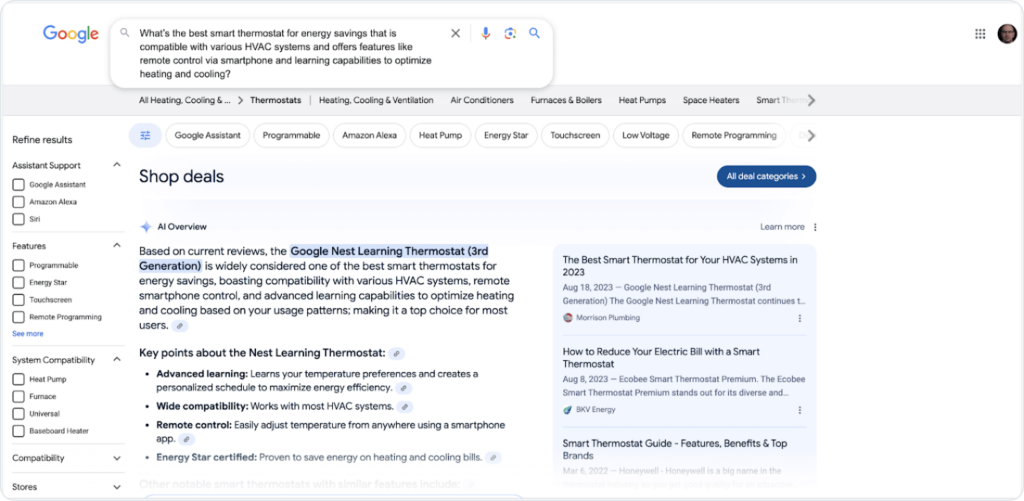
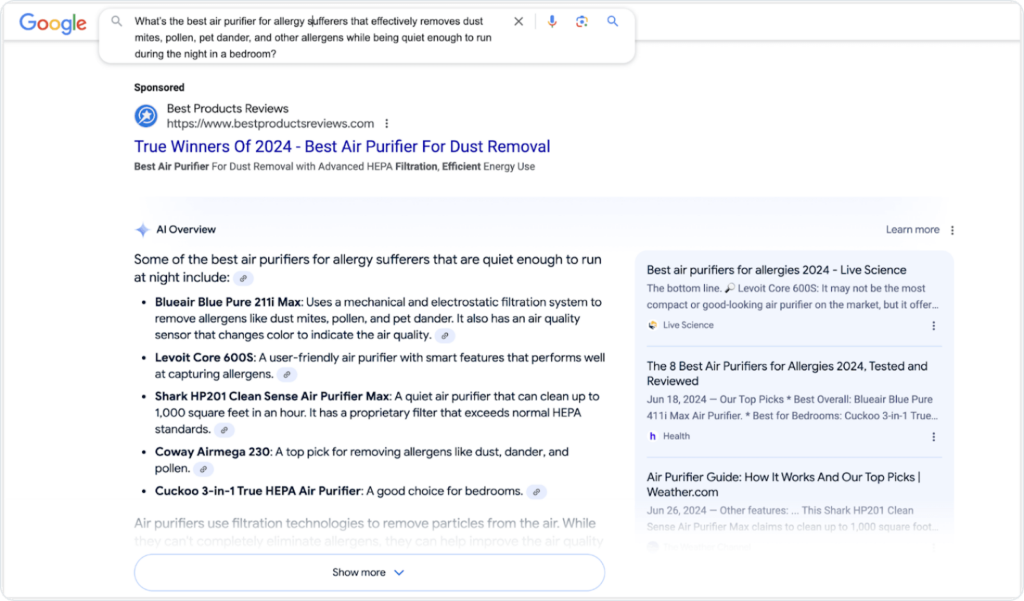
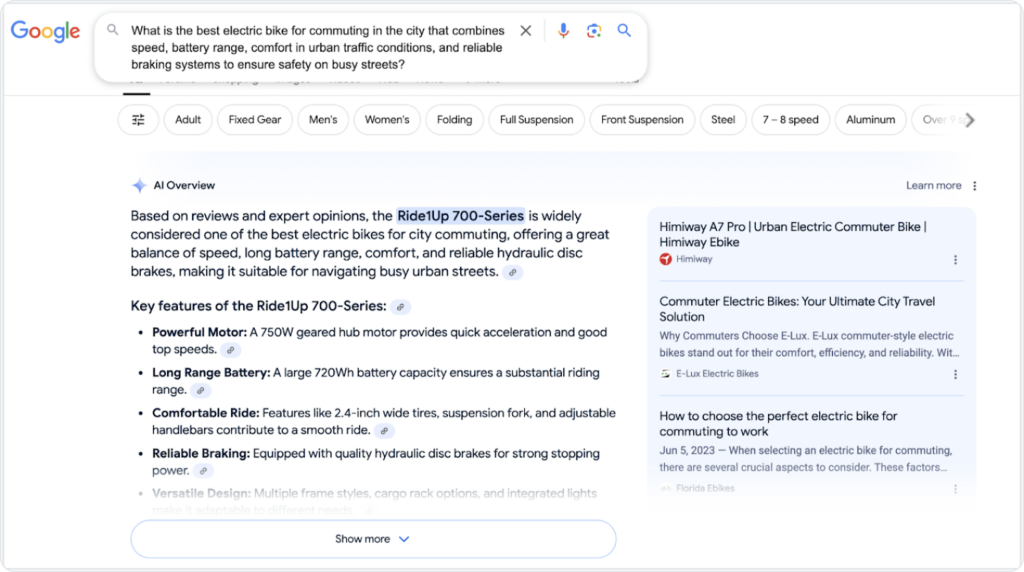
Will AI Search Replace Traditional Search?
It’s hard to say if SearchGPT will replace Google. However, search traffic is likely to be “dilute” across multiple platforms:
- ChatGPT users may prefer SearchGPT
- AI search assistants will be integrated into phones and GPS systems
And, I’m almost sure that Google will be a part of this evolution – Google will be fighting for shares in AI Search market & for satisfying their users who will (likely) expect to use conversational queries.
In conclusion, we’re entering a new era where natural language and user intent are becoming more important than traditional keywords.
The biggest challenges for AI search engines.
I believe the biggest challenge for AI search engines is their ability to rely on trustworthy sources.
In July, for internal purposes, I checked what percentage of publishers and newspapers block ChatGPT bots.
The results were astonishing: 87% of the top 100 newspapers were blocking ChatGPT.
My analysis showed that publishers commonly block other AI search engines as well, including Perplexity and Claude.
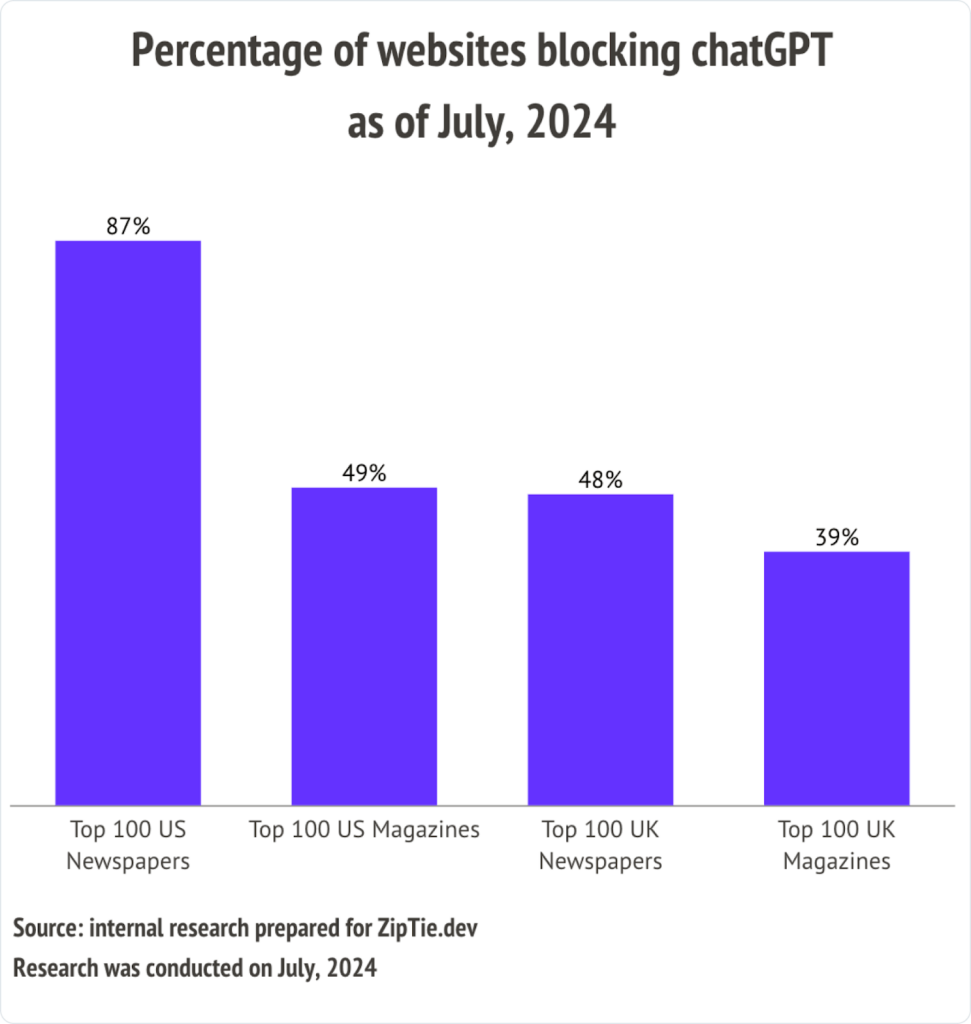
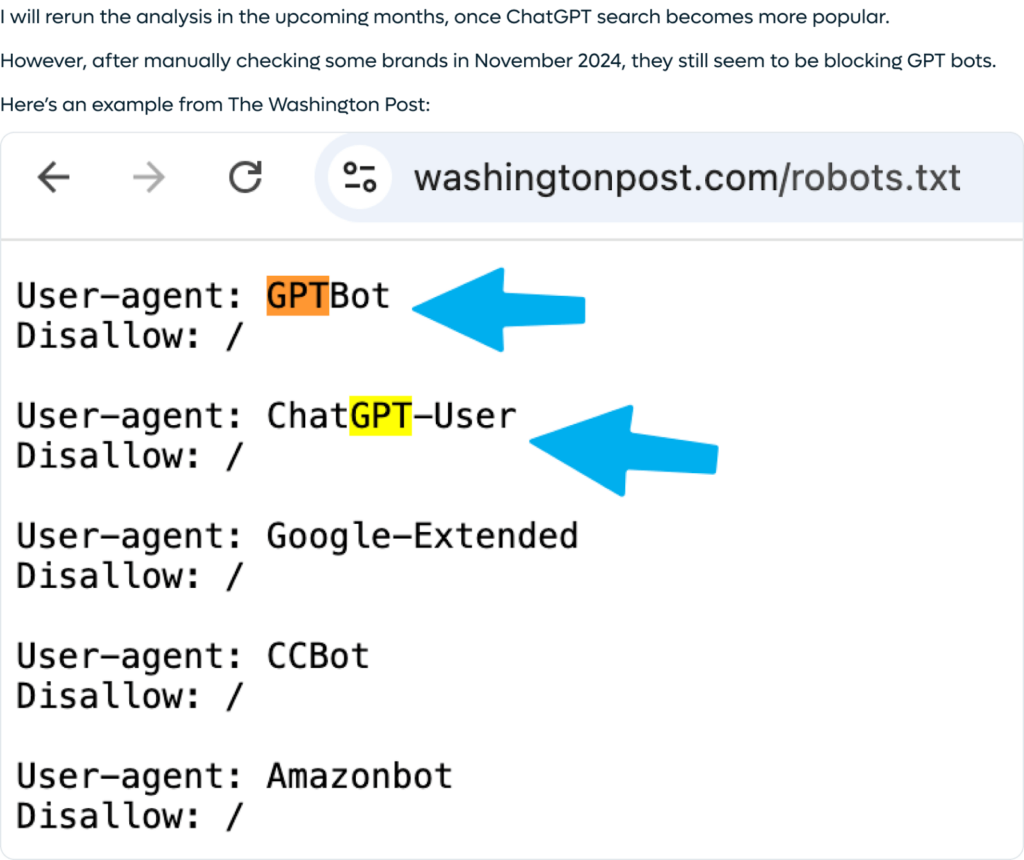
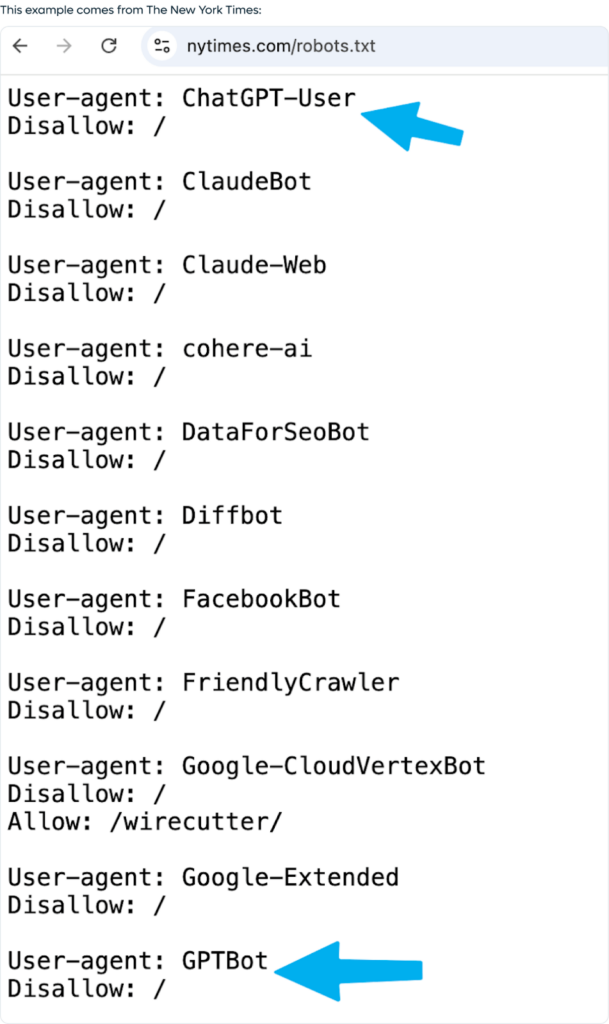
Of course, AI search engines can bypass these limitations in various ways:
- Since August, OpenAI allows publishers to decide if they don’t want their content to train ChatGPT models while still appearing in ChatGPT Search. They can block ChatGPT-User/GPTBot but allow OAI-SearchBot.
- OpenAI and other AI search engines also make deals with publishers
- Additionally, SearchAI and other AI search engines can purchase access to common databases.
However, this requires additional work on both OpenAI and publishers’ side.
When I search for coming from news from New York Times, I get a result from chatGPT search, but.. it presents no sources, which may indicate chatGPT really have no data from The New York Times, except for article titles and summaries (that potentially could be taken from some common databases).
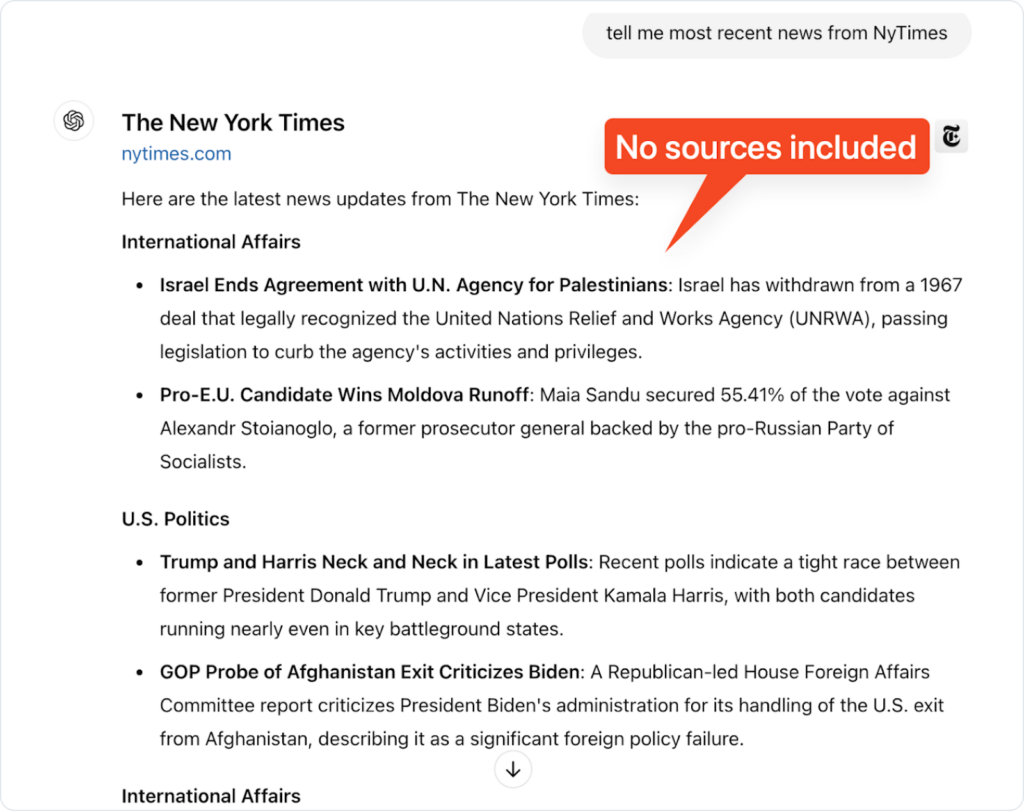
On the other side, it gives Google, as the leading AI search engine, a competitive advantage. Google doesn’t need to care about blocks from major publishers, as Google is a huge market for them.
Impact on users & marketers
As I mentioned, Gartner predicts AI search will capture 25% of the traditional search market by the end of 2025. As AI search evolves, we can expect:
- More natural language processing in search engines
- Increased use of voice search
- AI-organized search results
- Full integration of conversational AI in major search engines (Bing, Google)
Anyone involved in SEO or digital marketing will need to adapt to these changes to stay relevant in this rapidly evolving landscape.
This shift will significantly change SEO practices:
- Keyword research will focus more on user intent and customer journey
- SEO professionals will need to learn how to optimize for these new AI search engines.
Wrapping up & words of caution
We need to be cautious about AI-generated search results and demand high-quality information.
In June 2023, I wrote an article called “7 Deadly Sins of AI Overviews,” where I pointed out some crucial problems with Google’s AI summaries.
Now, in October 2024, I’ve taken another look to see how these AI Overviews affect “Your Money Your Life” (YMYL) queries.
These are searches where accurate and trustworthy information is especially important because they can impact people’s health or finances.
As users, we should ask for better quality from AI search engines. One of the possible ways we can do this is by:
- Encouraging fact-checking, especially for crucial queries related to money or life.
- Advocating for reliable sources: AI should prioritize trustworthy sources.
We already track AI Overviews with (probably) the highest accuracy on the market. Soon, you can expect some cool chances in our product, so stay tuned!
